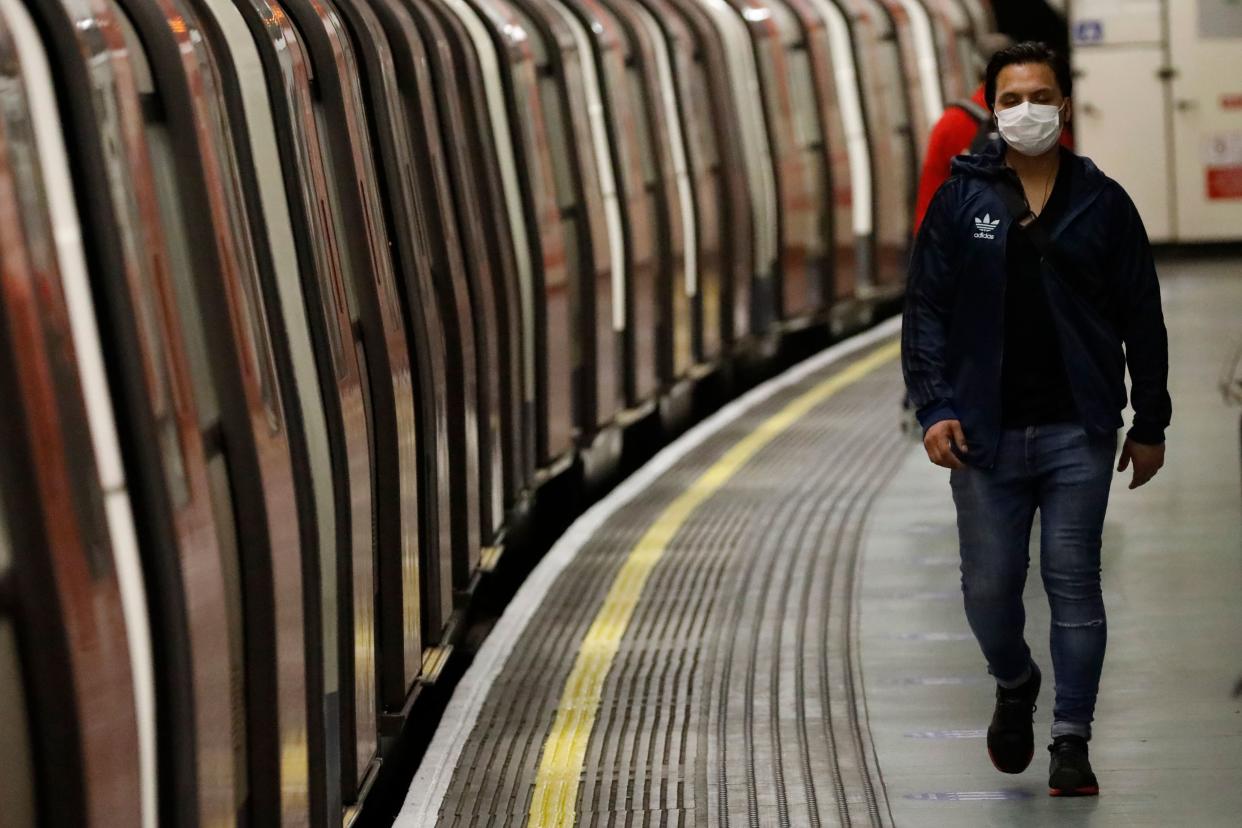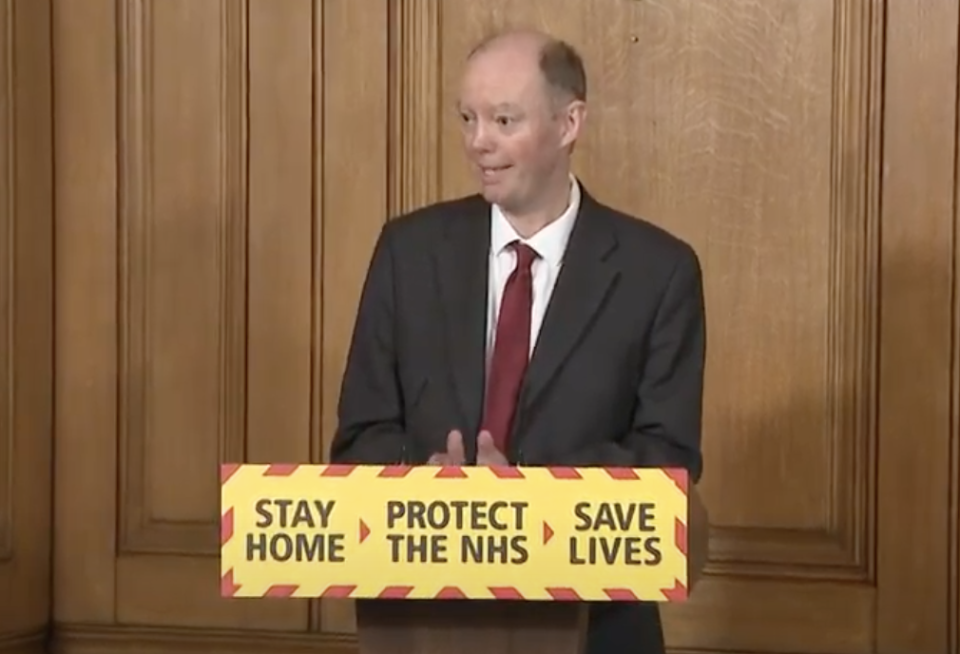Coronavirus: 'Disruptive' social distancing likely for rest of 2020, says government

“Disruptive” social distancing measures are likely be in place for the rest of 2020, the government has said.
Prof Chris Whitty, England’s chief medical officer, said on Wednesday that the measures will only be lifted if a COVID-19 vaccine has been found.
The chances of that, he conceded, are “incredibly small”.
Prof Whitty said at the government’s daily coronavirus press conference: “In the long run, the exit from this is going to be one of two things, ideally.
Latest coronavirus news, updates and advice
Live: Follow all the latest updates from the UK and around the world
Fact-checker: The number of COVID-19 cases in your local area
6 charts and maps that explain how COVID-19 is spreading
“One of which is a highly effective vaccine… and/or highly effective drugs so people stop dying of this disease, even if they catch it.
“Until we have those – and the probability of having those in the next calendar year are incredibly small – we are going to have to rely on other social measures, which of course are very socially disruptive as everyone is finding at the moment.

“Until that point, that is what we will have to do, and it will have to be the best combination that maximises the outlooks.”
He added: “It’s going to take a long time and I think we need to aware of that.”
Current social distancing guidelines include avoiding gatherings with friends and family, not using public transport where possible, working from home where possible and avoiding small and large gatherings in public spaces.
The UK remains under a full-scale lockdown until 7 May at the earliest.
Even when the lockdown is eventually eased, however, Prof Whitty’s comments show there will be no quick return to normal day-to-day life.
Read more: Silence, footballs and technical hitches: How the first 'virtual' PMQs unfolded
This was underlined by World Health Organization director-general Tedros Adhanom Ghebreyesus on Wednesday.
He said: “Most countries are still in the early stages of their epidemics and some that were affected early in the pandemic are starting to see a resurgence in cases.
"Make no mistake, we have a long way to go. This virus will be with us for a long time.”
Health secretary Matt Hancock had earlier said the government will introduce contact tracing at a “large scale” as a way of easing lockdown restrictions, as he also told MPs the UK had “reached the peak” of its COVID-19 outbreak.
He told MPs, many of whom joined the Commons session via video-link: “We are ramping up our testing capacity and our capacity for contact tracing in a matter of weeks.”
Hancock also stressed continued social distancing was needed to bring the number of new cases down.
Shortly afterwards, the Department of Health said 18,100 patients had died in hospital, up by 763 from Tuesday’s death toll.

 Yahoo News
Yahoo News 

